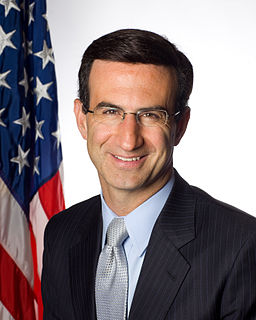A Quote by Howard W. French
Soon numbers of Chinese people will exit the work force, and the Chinese work force, which has already begun to shrink, will shrink in a vastly accelerated way. And so China's going to face huge retirement costs and Social Security costs, health care costs, related to this immense aging of the population.
Related Quotes
The Commission agrees that the federal government should help alleviate these costs. The best way to do so is to reduce illegal immigration.... We recommend immediate reimbursement of criminal justice costs, because these conditions can now be met, but we urge further study of the costs of health care and education before impact aid is provided.
We believe that part of the answer lies in pricing energy on the basis of its full costs to society. One reason we use energy so lavishly today is that the price of energy does not include all of the social costs of producing it. The costs incurred in protecting the environment and the health and safety of workers, for example, are part of the real costs of producing energy-but they are not now all included in the price of the product.
One of the biggest reasons for higher medical costs is that somebody else is paying those costs, whether an insurance company or the government. What is the politicians' answer? To have more costs paid by insurance companies and the government. ... [H]aving someone else pay for medical care virtually guarantees that a lot more of it will be used. Nothing would lower costs more than having each patient pay those costs. And nothing is less likely to happen.
I have young kids. The fiscal burden that will be imposed on them is going to depend primarily on whether we tackle this looming problem in our health care system - with rising costs that don't seem, by the way, to be necessarily associated with higher quality. That is the key burden that they will face.
































